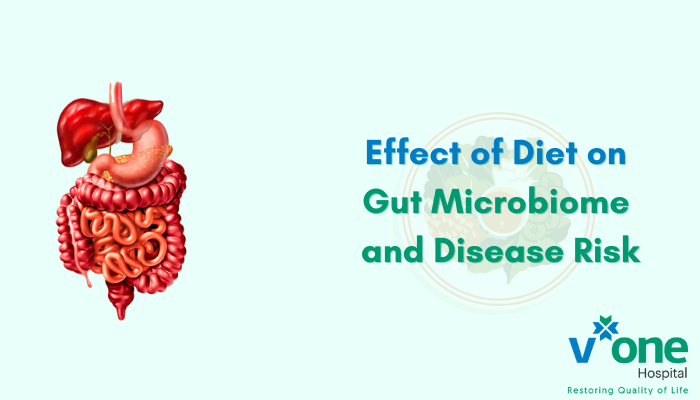How Your Diet Shapes Your Gut Microbiome and Immune System?
Trillions of microorganisms live in your gut, forming a dynamic ecosystem. The gut microbiome is a complex and dynamic ecosystem that plays a crucial role in our overall health and well-being. The trillions of microorganisms that make up the gut microbiome are involved in numerous physiological processes, including digestion, immune function, and metabolism.
The composition of the gut microbiome is unique to each individual, and stays relatively stable throughout life, although there are daily transient fluctuations. But while the composition of the gut microbiome is influenced by a variety of factors, including genetics and environmental exposures, diet is one of the most significant determinants of microbiome composition and function. In other words, you really are what you eat. So if you have ever wondered about the effects of diet on the gut microbiome and the potential impact on disease risk, or are wondering now, read on to find out.
What is the Gut Microbiome?
Your gut microbiome is the collection of microorganisms that live in your gastrointestinal tract. These microorganisms play a critical role in the digestion and absorption of nutrients, the regulation of immune function, and the production of important metabolites in your body. The gut microbiome consists of a diverse array of microorganisms, including bacteria, fungi, viruses, and other microorganisms. The composition of the gut microbiome varies greatly among individuals, with factors such as diet, age, and geography influencing the types and relative abundance of microorganisms present.
How Does your Diet Affect your Gut Microbiome?
Your weight isn’t the only reason why you should watch what you eat. Diet is one of the most significant determinants of gut microbiome composition and function. Eating a diet high in fiber and complex carbohydrates, such as fruits, vegetables, and whole grains will promote the growth of beneficial bacteria in your gut. These bacteria then ferment dietary fiber to produce short-chain fatty acids, such as butyrate, which have anti-inflammatory and anti-cancer properties. On the other hand, a diet high in saturated fat and simple sugars, such as red meat and processed foods, promotes the growth of harmful bacteria in the gut. These bacteria produce toxins and other harmful metabolites that can contribute to inflammation and disease.
Can your Diet Make you More Prone to Disease?
The gut microbiome affects many aspects of human health, and disruptions in gut microbiome composition and function have been linked to a wide range of diseases, including obesity, diabetes, inflammatory bowel disease, and cancer. Diet-induced changes in gut microbiome composition and function have been linked to the development of these diseases. For example, a diet high in saturated fat and simple sugars have been shown to promote the growth of harmful bacteria in the gut, which can contribute to the development of obesity and metabolic disorders. Conversely, a diet rich in fiber and complex carbohydrates has been shown to promote the growth of beneficial bacteria in the gut, which can reduce inflammation and lower the risk of chronic diseases.
The Importance of Prebiotics and Probiotics
Prebiotics and probiotics are two types of dietary supplements that can be used to promote a healthy gut microbiome. Prebiotics are non-digestible carbohydrates that are fermented by beneficial bacteria in the gut, promoting their growth and activity. Bananas, onions, garlic, and whole grains are some examples of prebiotic foods. Probiotics, on the other hand, are live microorganisms that can be added to the diet to help restore and maintain a healthy gut microbiome. Examples of probiotic foods include yogurt, kefir, and fermented vegetables.
Diet is a critical factor in determining gut microbiome composition and function, and this has important implications for disease risk. A diet high in fiber and complex carbohydrates promotes the growth of beneficial bacteria in the gut, while a diet high in saturated fat and simple sugars promote the growth of harmful bacteria. The gut microbiome plays a critical role in many aspects of human health, and disruptions in gut microbiome composition and function have been linked to a wide range of diseases. Prebiotics and probiotics can be used to promote a healthy gut microbiome, and a diet rich in whole foods is essential for maintaining gut health and reducing the risk of chronic diseases.

